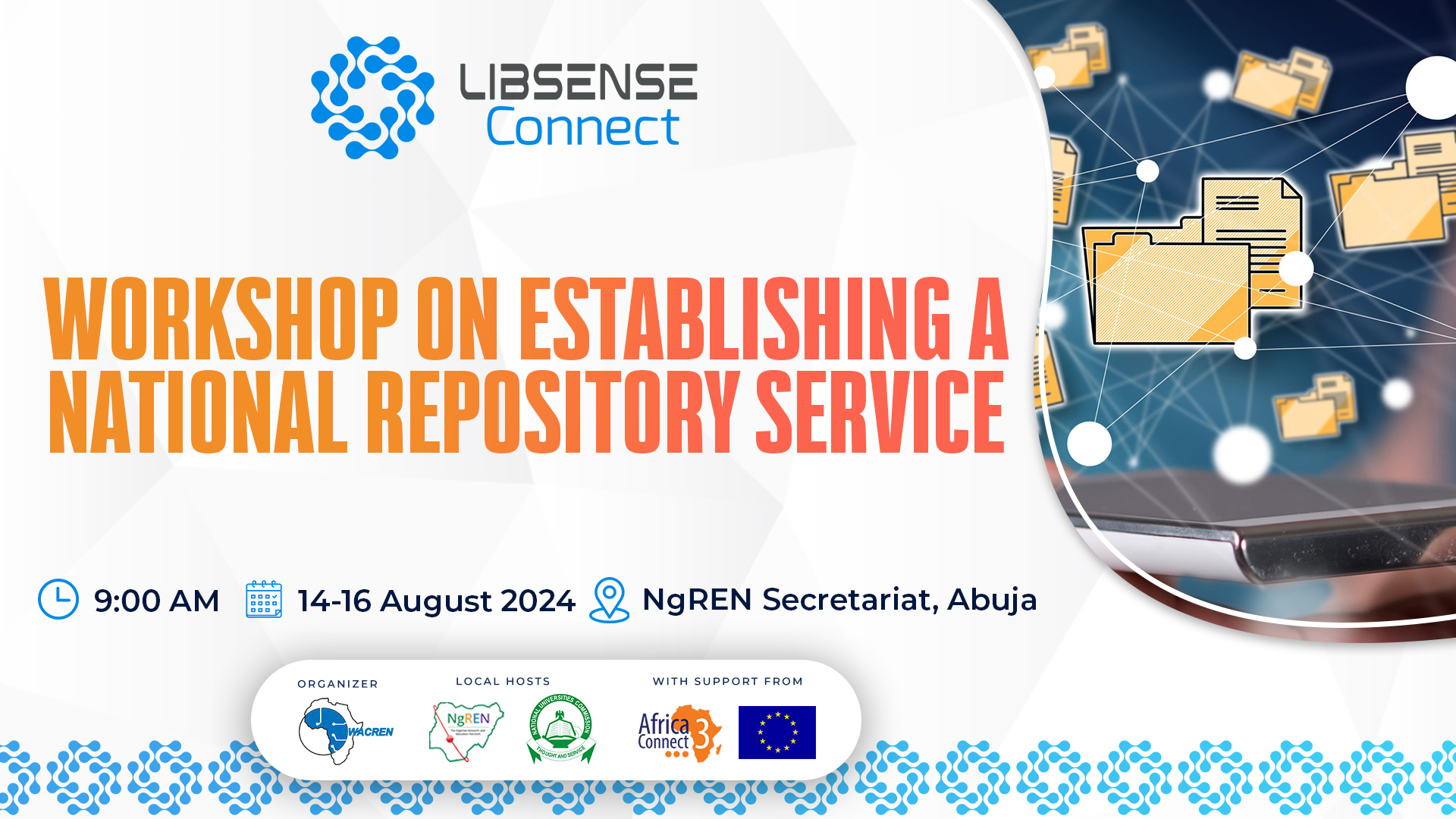LIBSENSE-Connect 2024 - Abuja: Establishing a National Repository Service
NgREN Secretariat

The second LIBSENSE-Connect workshop will explore the requirements and benefits of establishing a national repository service for Nigeria. WACREN proposes a centrally hosted, multi-tenanted repository service, potentially utilising the open-source Invenio-based WEKO3 platform developed in collaboration with Japan's National Institute of Informatics.
A national repository service can provide significant advantages to participating institutions. The workshop will present these benefits and facilitate discussions on how such a service can elevate Nigerian institutional repositories within the global open science infrastructure, as a regional example.
Workshop Objectives
Meeting Institutional Requirements:
The workshop will address the specific needs of institutions considering the transition to a national repository service. Ensuring these needs are met is crucial for participation and success.
Technical and Migration Considerations:
Participants will be invited to outline any technical requirements they foresee in moving their repositories to a national service. The workshop will also cover data and metadata migration from legacy systems, such as upgrading from older versions of DSpace to a modern platform.
Focus on Metadata Interoperability:
A key technical focus will be on metadata interoperability. The workshop will discuss the development of a national metadata profile for Nigeria, reviewing the Common Metadata Schema for Nigerian Repositories recently developed in collaboration with AULNU, and examine it against the modern Rioxx 3 profile, which supports national open-access policy reporting and provides machine-interoperable metadata.
Benefits and Outcomes
By the end of the workshop, participants will:
- Understand the benefits of a national repository service.
- Identify and articulate their own requirements and concerns.
- Engage in discussions about the service in an open and collaborative environment.
- Gain insights into the technical and practical aspects of migrating to a national repository service.
The workshop is an essential step towards enhancing the role of institutional repositories from the region in the international open science community, ensuring they meet both national and global standards for accessibility and interoperability.
Target Participants:
Participants will be technical personnel responsible for repositories and related systems supporting scholarly communication in higher education institutions.
Participants for this workshop must:
- be based in an African country
- have a working knowledge of English
- be technically competent to a certain level (determined through information provided in the registration form)
- be able to articulate their institution's likely requirements for a hosted repository service.
